By Judi Markowitz

I first met Ann Mandelbaum in August 1973 on a small yellow school bus. We had both recently been hired to teach at Novi Middle School. By chance we sat next to each other and connected immediately, sharing details about our lives as we toured the district. It just so happened that we were close in age — our early 20s. I was from Oak Park, Mich. and Ann was from in Havana, Cuba.
During the 1950s, when Ann was a child, Cuba was a country that had endured the rule of Fulgencia Batista–the U.S.–backed military dictator for seven years.. Batista benefited from this relationship with the U.S. His repressive government profited from the exploitation of Cuba’s commercial interests. He even had alliances with the American Mafia. Cubans suffered at his hands — financially and with their lives.
After Batista’s government was overthrown in 1959, Fidel Castro came to power and the citizens were elated. Ann recalled there were posters of Fidel Castro and Jesus Christ next to each other in many homes. She said that people equated Castro with being a savior. Men even grew beards to emulate their beloved leader. People cheered, crowded the streets, and danced with joy. The atmosphere was hopeful.
For two years, the country appeared to be headed in the right direction — education and health for everyone was stressed. All citizens were encouraged to learn to read and write in Spanish. Ann’s mother, Rachel, attended classes. Each year Castro initiated new programs and had specific goals to improve the lives of its citizens. — until the tight grip of the Communist party prevailed.
Cuba’s savior became a dictator and private businesses were no longer tolerated — big or small. The government now owned all factories, restaurants and companies. Nationalism took hold. The cheering crowds became silent as their rights faded. The writing was on the wall.
Ann’s earliest recollections were centered around her home. Her father was a tailor, and her mother was a seamstress. They owned their own business, and their house was at the back of the store. Her parents worked side by side all day long — but that’s where the relationship ended.
With tears in her eyes, Ann recounted that her parents argued constantly–her father was abusive. “The beatings my mom endured were unconscionable,” she told me. “My brother was our protector. I felt safe when he was around. He was like a father figure to me.” But Bernard was 20 years older than Ann, and no longer lived at home to help with this unrelenting situation. Bernard was married and had a son.
As Castro’s revolution ramped up, Bernard saw that things were going sideways in the country — there was instability and unrest. And then Castro’s dictates closed their tailor shop, took away the sewing machines, and left the family at the mercy of new communist regulations.
Bernard knew he had to leave the country and made preparations. He had dreams of his own — he had studied to be a doctor. Bernard applied for a visa at the American Embassy to complete his residency in New York. Ann was devastated when Bernard and his family left Cuba—she felt abandoned. It was 1960 and Ann was only nine years old.
It was now Ann’s job to protect her mother. She was alone with no resources to help her handle this situation. There were no agencies she could turn to for guidance or refuge. “I had to be strong for my mom even though I was still a child,” Ann said. I knew we had to leave the country as well.” With continued threats from her dad, Ann eventually stopped talking to him. Her parents divorced, but they lived together due to their financial situation. And then the sucker punch was thrown — Ann’s father started to bring prostitutes to the house. The dysfunction kept mounting.
There was a small Jewish enclave in Havana when Ann was a child. Her parents had emigrated from Poland and spoke several languages — Polish, Yiddish, and Spanish. Ann grew up primarily hearing Yiddish and Spanish in her home. She recalled, “I knew I was not like the others in my town. I had blond hair, did not have a last name like Garcia or Mendez, and my family was in the minority — we were Jewish.” Ann remembers feeling different as a result, but not enduring direct discrimination.
Ann’s family never celebrated any of the Jewish holidays and never attended synagogue since there were none in close proximity. But Ann did understand her Jewish roots and knew, when the time came, she was expected to marry a Jewish man.

As mounting numbers of citizens prepared to leave the country, and even some neighbors disappearing due to their political affiliations, Ann found strength in the small circle of Jewish friends she associated with.
Even though Ann’s family was not religious, she gravitated towards a Zionist group, Betar. She would attend meetings regularly in Havana and here she became acquainted with the Hebrew language. Ann even met Menachem Begin when he visited Cuba. She also had aspirations of visiting Israel but that was derailed due to Castro’s strict political and social changes.
Finally, after six long years, Ann and her mother were able to leave Cuba. Ann was 15. She needed her father’s signature as well to make the journey since she was not of legal age. At first, he would not comply, but that quickly changed. Bernard petitioned for them as well — he was Ann’s hero, and she was proud to be his sister.
Ann and her mother arrived in Miami in 1966. Since Cuba was a communist country, the U.S. considered them refugees. They were welcomed by HIAS — a Jewish organization that helps refugees resettle. After a few days Ann and her mother went to Michigan to be reunited with Bernard and his family. He was an OB-GYN now and had taken a position at Providence Hospital.
Ann was elated to be with Bernard once again. They moved in with his family, but it was a bit challenging since he and his wife now had three children. Ann helped with chores around the house and took care of her niece and nephews. But it didn’t matter how much she contributed, Ann felt that her sister-in-law resented her — she didn’t like the close relationship between Ann and Bernard.
Within two days of moving to Detroit, Ann’s mother found a job. She was hired as a seamstress downtown and took the bus back and forth every day. She would leave when it was dark and return in the dark as well. Rachel made 25 cents for each piece of clothing she sewed. It wasn’t much but at this juncture she could contribute to the household. Within six months, Ann and her mother moved to their own apartment. But Ann’s mother didn’t drive, and they had to depend on others for transportation.
Ann reflects back on her early memories of Detroit by saying “I felt that people were cold and distant. I was used to the busy street life of Cuba where everyone knew each other. I was very lonely.” Learning English was a challenge, but Ann readily caught on. However, it was a difficult transition adjusting to life in the U.S.
Soon after her arrival in Michigan, Ann enrolled at Henry Ford High School in Detroit and slowly began to make friends. She graduated after attending for two years and received a scholarship to Wayne State University. Here Ann majored in Spanish, minored in French, along with obtaining a teaching certificate. She was on her way – the American Dream was in sight.
After teaching in Novi for four years. Ann decided to go back to Wayne State University and pursue her Ph.D. in Latin American Literature. She became a graduate assistant, taught, and took classes. Also, at this time Ann was fixed up by a friend with George Mann. He was from Transylvania, Romania and had come to the U.S. as a teenager — they had a lot in common. Ann recalled George saying “he knew she was the one” from the first moment they met. They were married that same year — it was 1975.

Ann and George decided to spend a year abroad in 1979, in Spain. Ann continued her studies while George enjoyed the sights and learned Spanish. With her Ph.D. in her pocket, plus valuable teaching and organizational skills, Ann opted to help George in his law practice. They were working side by side, just like Ann’s parent’s years before, except they had love and mutual respect.
George practiced immigration law. Ann always encouraged him and told George to delegate his clerical work. She would remind him that time was better spent trying to find solutions for his clients. George’s motto was “We Specialize in the Impossible.” This attitude affirmed their desire to reach out internationally as well.
Their first endeavor was to help Ann’s father leave Cuba. Her mother wanted him out of the country. Ann was conflicted but chose too accede to her mother’s wishes. At this point her dad was sick, blind, and practically destitute. Ann felt that if she never saw him again, it would have been fine. She also told her mother that she wouldn’t take care of her father — it was now her mother’s responsibility. In 1979, Ann’s dad was able to leave Cuba after 13 years.
Russia was the couple’s next frontier. Ann and George traveled to the former Soviet Union in 1982 to help Russian Jews emigrate. And then a repeat performance occurred in 1987 as Ann and George went to Russia for a second time. Their desire to help oppressed people took them to Ethiopia as well in 1984 and 1985. They adopted two families in order to work through a web of complications and have them legally leave the country and relocate. Helping several Falasha families (Ethiopian Jews) settle in Israel was extremely gratifying.
Then, after being married for 14 years, Ann and George started a family. Interestingly, Ann’s brother Bernard delivered three of her four children. Their joy was short-lived due to Bernard being diagnosed with cancer. Sadly, he died four months later. It was unbearable for Ann and the family. Their fourth child was named after Bernard — his memory lives on.
Ann is now 72 and George is 75. Immigration law remains in the forefront with no stopping in sight. Ann’s managerial expertise keeps the office afloat even though she comments that now, everyone in the office could be her grandchild. Ann’s nonprofit is still close to her heart — an ESL program to teach English to immigrants. Their work continues as Ann and George try to help others make a new life in this country. Does Ann have any new undertakings on the horizon? In her words, “Life is a project and family is, too.”

Judi Markowitz is a retired high school English teacher of 34 years. She primarily taught 12th grade and had the pleasure of her three sons gracing her classes. In addition, she taught debate, forensics, and Detroit film. Judi has four adult children and seven wonderful grandchildren. She is married to Jeffrey Markowitz, whom she met in high school.
Judi grew up in Oak Park, Mich. which had a stellar school district, with excellent teachers. The city provided activities for all–and there were even sidewalks. Judi moved to Huntington Woods as an adult, which is a half mile from her childhood home. She wanted the same experience for her children as she had growing up, and Huntington Woods provided that. The View from Four Foot Two is Judi’s first book.






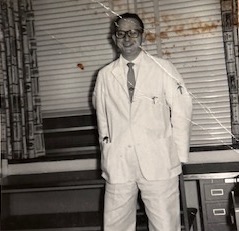

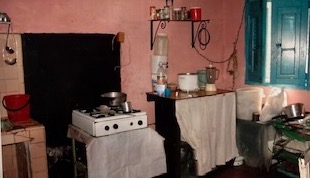


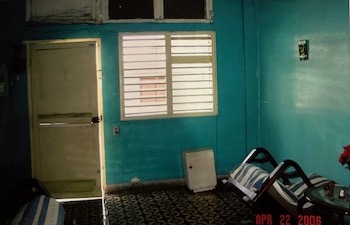

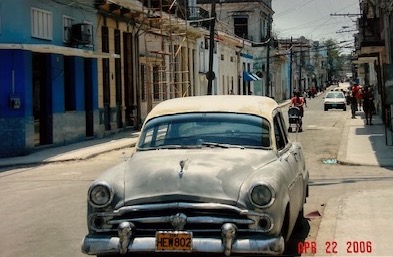
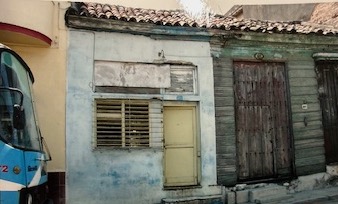


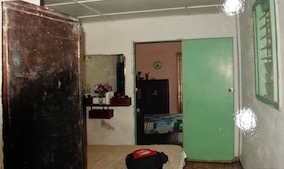
Thank you for the article
Ann is my Aunt, Bernard is my father and I have fond Passover memories at Ann and George’s home.
Nathaniel B. Mandelbaum
I never knew Ann had so many challenges, accomplishments, charitable attributes. She is such a humble and respectful person that I always respected her anyway, just on her own merit.
She and her Husband George- are always in my corner, and I in they'res. Sigmund (Zig) Glaser
Ann is so amazing and awesome. Our world would definitely be better with more people like her. ❤️
Once again beautifully written. I know Ann and I love hearing her story. She’s a wonderful person.
A stirring and inspiring story superbly told.. Ann certainly deserves to be a "sung" heroine rather than an unsung one.